Raising chickens is something that more people are choosing to do on their own. But it isn’t something you want to jump right into – you definitely want to do your research on the type of breed that meets your goals.
There are many pros for raising heritage chicken breeds, and there are also cons to consider.
1. What is a heritage chicken breed?
Generally, a “heritage” breed is perceived as a breed that has been around for decades or more, and often passed down through families or kept within small farming communities instead of being mass produced.
By the definition of the American Livestock Breeds Conservancy, a “heritage breed chicken” is one “hatched from a heritage egg sired by an American Poultry Association Standard breed established prior to the mid-20th century, is slow growing, naturally mated and with a long productive outdoor life”.
The ALBC definition excludes heritage breeds they didn’t know about or recognize before 1950, and does include some breeds that were bred on a larger scale and for commercial purposes.
Heritage chicken breeds are heritage because they were developed over a long period of time and were bred specifically for certain traits. While some were the perfect dual chicken breed (great for both eggs and meat), others were perfectly adapted to the local climate, available foraging, even local predators.
Today, some heritage chicken breeds are in danger of dying out due to the focus on creating new breeds specifically for meat or efficiency instead of longevity.
2. What are the pros of raising heritage chicken breeds?
While for bigger companies it’s more cost-effective to raise chickens who produce an egg a day for a shorter amount of time or chickens that are ready for slaughter at 9 weeks, those are not usually the best breeds to keep at home or on a homestead.
For your average homesteader, it’s just more efficient to keep a flock of chickens that will steadily lay a good amount of eggs over the course of several years (even if they don’t lay as much in winter).
If you keep free-range hens, getting a local heritage breed will often mean your chickens need very little additional feed as they’re perfectly adapted to the available food in the wild. They are also bred for the local environment: that could mean they need less water in a dry climate, they’ve got feathers on their feet to keep them warm, or they’re light and able to roast in treetops to escape from predators.
3. What are the drawbacks of heritage chicken breeds?
What one person sees as a quality can be a drawback for someone else.
For instance, most heritage breed chickens are pretty much self-sufficient – they can get (almost) all their food from free-ranging and foraging, and they’re often good at staying away from local predators.
However being bred for free ranging also means that many breeds are flighty (if you keep your chickens inside a chicken run, you don’t want them to fly away!), intolerant of close confinement, and sometimes even avoiding humans altogether.
For some breeds used to foraging their food where there’s not much to find, it can also mean less meat on their bones – or being below-average egg layers.
If you want to know more about which breeds to get if you DO want a calm and docile bird that lays lots of eggs, read on!
4. What’s the best dual chicken breed?
In general, most heritage breeds are dual breeds; when kept on the homestead or small farms it just doesn’t make sense to specialize in just laying eggs or just producing meat. People who raise their own chickens want the best of both worlds 🙂
5. What are the best heritage chicken breeds for eggs?
That being said, some breeds lay more eggs than others. Examples of good heritage chicken breeds for eggs are
- Ancona
- Aseel
- Barnevelder
- Chanteclair
- Delaware
- Jersey Giant
- Leghorn
- Maran
- Minorca
- New Hampshire Red
- Orpington
- Plymouth Rock
- Rhode Island
- Welsummer
- Wyandotte
6. Calm heritage chicken breeds
Many heritage breeds are bred for free ranging, and therefore are not very docile or easy to handle. Some are even considered nervous or tend to shy away from humans.
There are several breeds that are perfectly fine with being handled by or living close to humans; those are the
- Araucana and Ameraucana
- Australorp
- Barnevelder
- Brahma
- Buckeye
- Delaware
- Dorking
- Faverolles
- Holland
- Jersey Giant
- Naked Neck, Orpington
- Plymouth Rock
- Sussex
- Wyandotte
7. Heritage chickens that get broody
Some commercially bred chicken breeds do not (or very rarely) get broody; they’ve been bred to lay a lot of eggs, not to sit on those eggs once they’ve been laid. Their eggs need to be hatched in an incubator.
That is not the case with heritage breeds; one major pro of heritage breeds (for most people) is that most get broody easily, with only a few exceptions (namely the Ancona, Leghorn and Rhode Island).
Some heritage hens get broody easier than others though – so if you want your flock to reproduce naturally, always research characteristics for the breed before you buy!
In conclusion: why should you (not) keep heritage breeds?
Local heritage breeds are often great for a homestead, backyard chicken keepers or smallholders as they’re usually very adapted to the local climate. They can often get (almost) all their food from free ranging, and they’re usually good dual breed chickens.
If you’re looking for chickens to fulfill a specific purpose like meat birds or layers (where longevity or adaptation to local circumstances doesn’t matter), you may be better off with a commercial chicken breed that does exactly what you need.

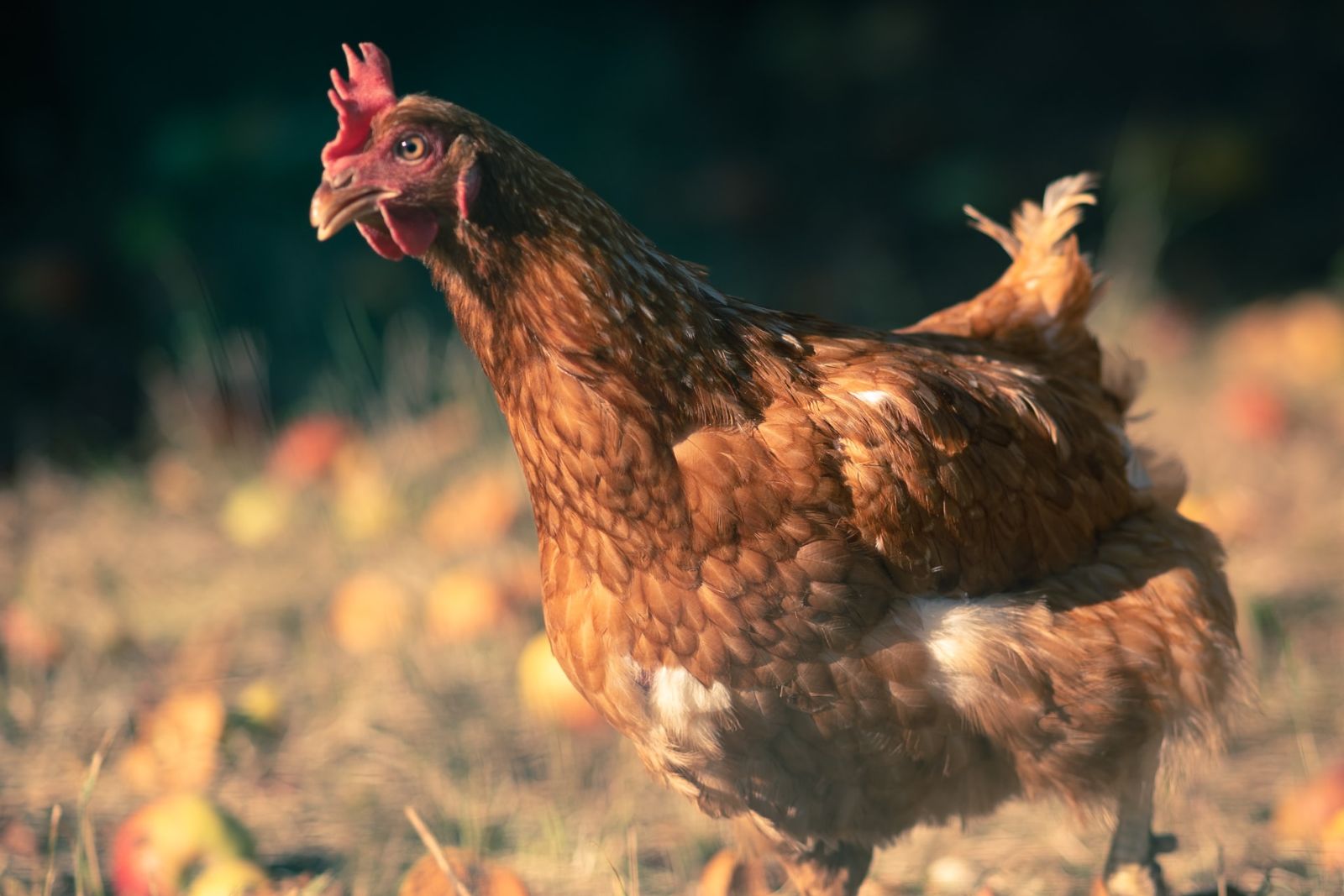
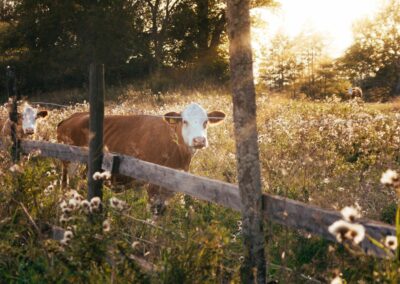
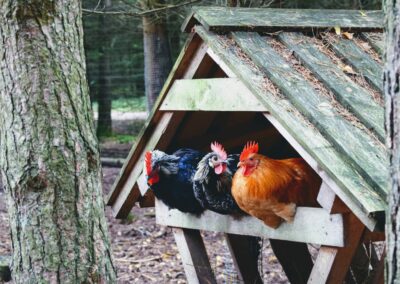
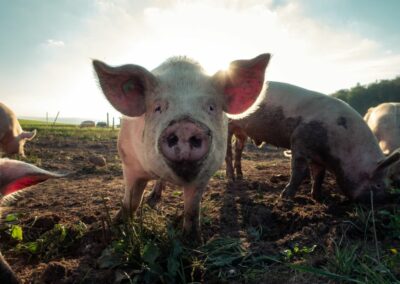
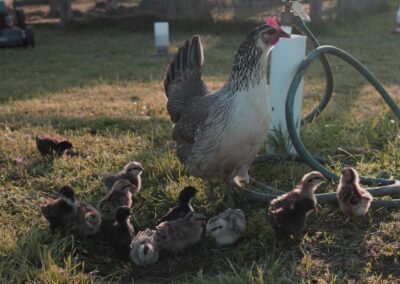
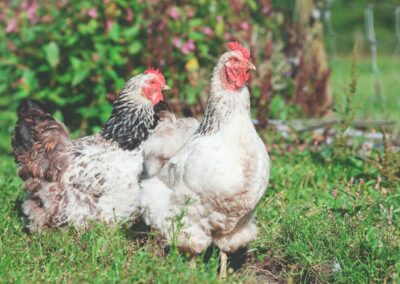
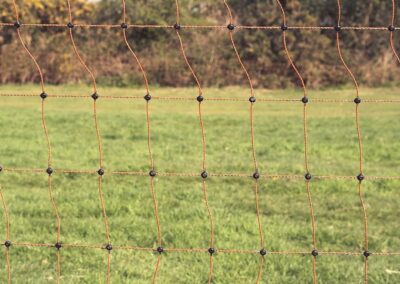

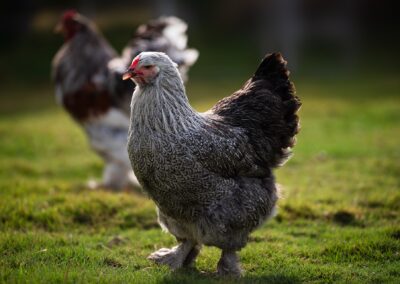
0 Comments